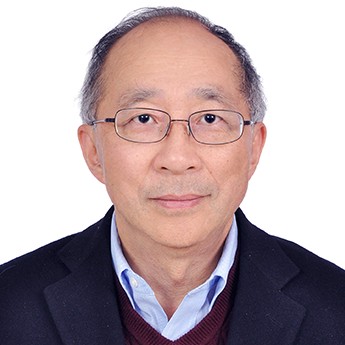
McGowan Institute for Regenerative Medicine Yu-li Wang, PhD, and his team are researching cell migration while using the technologies developed for potential applications in artificial organs and other devices. The team has been awarded a five-year research grant from the National Institute of General Medical Sciences (NIGMS), one of the National Institutes of Health, to support this work.
“We are one of the world leaders in the field of mechanobiology, and we show that if you want to design an artificial material or organ to work properly, you need to pay attention to how living cells interact with materials,” said Dr. Wang, professor of biomedical engineering at Carnegie Mellon University. “You have to look not only at chemical interactions but also the mechanical properties.”
Cell migration is the directed movement of a cell or group of cells in response to chemical or mechanical signals. It is a fundamental cellular process throughout life, from embryonic development to death. Given the complexity of even the simplest tissue, it is almost impossible to put correct types of cells directly in the correct location to form a native or artificial organ without involving some forms of migration.
This research toes the fuzzy line between foundational and translational research. Dr. Wang and his team have developed both tools and fundamental knowledge that are critical for the successful design of biomedical devices and interventions.
At the center of the research is how cells communicate with each other mechanically. Cells have been observed to generate forces and apply them both to the environment and the neighboring cells — they tug on their neighbors to communicate with them.
“We need to know how they conduct that kind of communication and then how we can design artificial materials that facilitate communication in order to direct cells to their destination,” Dr. Wang said.
For example, experiments have been conducted in biomedicine to inject stem cells in part of a diseased heart where cells have died. If the stems cells are injected without paying attention to the surrounding environment (i.e. changes in the diseased tissue), they will never turn themselves into normally functioning heart cells. Researchers need to observe the environment and figure out how to modify it so the injected stem cells can successfully transform into part of a healthy heart. The same idea applies for artificial organs and engineered tissue, meaning Dr. Wang’s work is general knowledge capable of affecting many kinds of translational research.
“In order to facilitate our research, we are developing new methods specifically designed to help solve problems,” Dr. Wang said. “From my experience, the highest impact often comes with the introduction of a new technology that not only enables us to solve our problems but contributes to broad, general applications.”
One of the technologies Dr. Wang and his team are developing is 3D printing for polymeric hydrogel, a material that could potentially be a base for artificial organs. This particular hydrogel is permeable and non-sticky and has been used in some types of contact lenses. However, wider applications have not been possible, in part because there was no technology for forming complex shapes. The team has successfully developed 3D printing technology to solve this problem.
The team has also developed a machine learning approach that tracks migrating cells over time and distance. With part of their research focused on detecting the mechanical forces generated by cells in the environment, machine learning allows the team to streamline the calculation and bypass common limitations and caveats of conventional methods.
The broad accessibility and impact of Dr. Wang’s research is why it is supported by NIGMS, which specifically funds research that carries the potential for general advances in human health and medicine. This type of grant is specifically designed to support senior researchers with strong track records in funded research. Instead of the typical period of four years, it provides five years of funding and gives researchers a significant degree of freedom to develop the direction of their work within a general frame of purpose. This is particularly important in a rapidly developing field.
“We can modify the approach and direction of research to take advantage of any new developments,” Dr. Wang said. That is particularly important in our field, which is developing very quickly. The grant encourages us to maximize our creativity and imagination.”
Read more…
